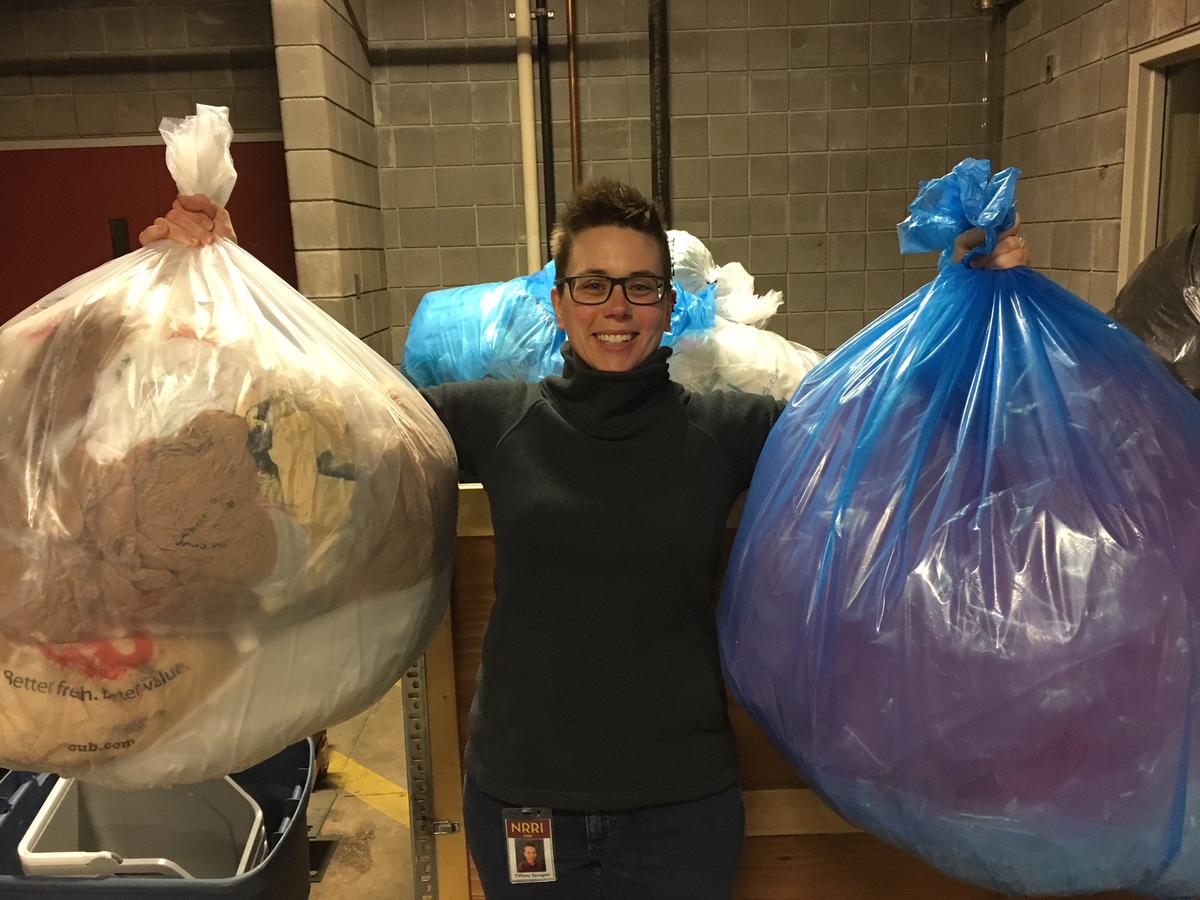NRRI started with a recycled building. In the mid-1980s, NRRI transformed an abandoned air force command bunker into an innovative research institute.
But the inefficiencies of this old building are a challenge. How can NRRI promote sustainability in all other arenas, except its own? It can’t. And that’s why a staff-powered Sustainability@NRRI program began back in 2012. Its goal: to reduce the staff and building’s environmental footprint.
The program is managed by Tiffany Sprague whose college studies in biology with a minor in environmental management makes this job an especially good fit.
“I enjoy getting emails from fellow staff members asking how to properly dispose of X, Y or Z,” she said. “I even get asked about disposing personal items, which shows me that our staff really cares.”
The program has four main goals: 1) Reduce operation costs, 2) Decrease waste, 3) Demonstrate green technologies, and 4) Support staff in making sustainable decisions.
Offering employees opportunities to compost, recycle paper and plastic, dispose of batteries, etc., is just a start. Sprague also helps them reduce waste produced at meetings and other staff gatherings. These efforts have resulted in composting 8,200 pounds of food and plant debris and recycling 13,000 pounds of white paper since 2013.
“While it makes me happy to know we kept 160 pounds of plastic bags from the landfill last year, it would be great if we eliminate the use of plastic altogether,” said Sprague.
In this role, she’s learned that the field of sustainability is fast-paced and still evolving. She tries out new processes to keep up with the ever-changing rules of recycling. For instance, Verso Corp., the local paper company, has stopped taking white paper for recycling so sorting efforts will change. Sprague also works with researchers to incorporate sustainability practices into their Standard Operating Procedures and field work.
NRRI’s large greenhouse is getting special attention now to make it more energy efficient, reduce the cost to heat it and demonstrate green technologies. Other goals include developing a sustainability plan for NRRI’s labs in Coleraine, Minn., audit the water use at the Duluth facility, and continue community collaborations.
“This job is fun because I get a lot of great ideas from our researchers and leaders across the institute,” added Sprague.
